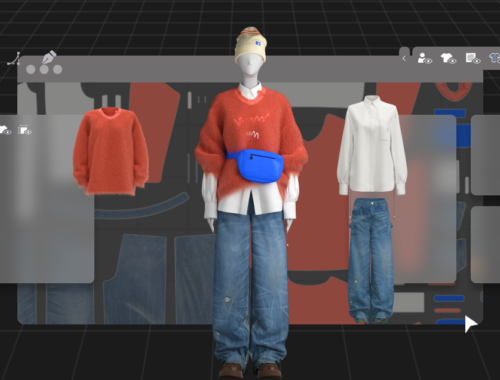She's With Them–But We've Got Us: A Movement Bigger Than Sanders
The proper question of the week is not why Bernie Sanders supporters—delegates gathered in Philadelphia and the millions backing him across the nation—are so angry with the Democratic National Committee this week.
The contents of internal party emails published by WikiLeaks last Friday, now known as the #DNCLeak, only confirmed what most Sanders supporters knew or assumed to be true all along: that the DNC had put its thumb on the scale in favor of Hillary Clinton throughout the primary season. For many, the leaked emails—though affirming—simply offered more concrete evidence and credence to an already established fact.
“And if they didn’t believe [Sanders could actually beat Clinton], none of this would have been done.”
So what’s the real question regarding how the leaks fit into the political tensions playing out this week at the national convention?
According to RoseAnn DeMoro, executive director of National Nurses United which endorsed Sanders and campaigned aggressively on his behalf, the point isn’t to locate the source of the anger (that’s obvious), but instead to ask this: Why did the Democratic Party decide to operate so aggressively to undermine the Sanders campaign in the first place?
Despite the intensely competitive contest between Clinton and an insurgent Barack Obama in 2008, says DeMoro, the DNC was far more neutral, or at least appeared to be, during that campaign.
But the reason for this year’s behavior, she explained in a phone interview with Common Dreams, is that the DNC and the Clinton campaign—and more importantly their joint backers on Wall Street—realized something altogether too terrifying: “that Bernie Sanders could, in fact, defeat Hillary Clinton. And if they didn’t believe that, none of this would have been done.”
That answer, though obvious on the one hand, has not been widely discussed even as examples of how the DNC acted to undermine the Sanders campaign are well-documented. They include:
- the decision to sanction so few televised Democratic debates—and scheduling the few that did occur on nights almost guaranteed to have low viewership—a curious choice if you believe in the potency of the party’s ideas and vision;
- the decision to suspend the Sanders campaign’s access to the DNC voter database ahead of the first crucial contest in Iowa;
- myriad examples of restricted voter access in Arizona, New York, and elsewhere;
- the serious questions of party rule-breaking in Nevada;
- use of state-level committees to get around the campaign’s limitations on receiving large-donor gifts; and
- the way pledges of support by superdelegates were exploited early and often (and right to the end) as they fed a media narrative that Sanders was always much further behind than he actually was.
“What this whole corruption in the DNC during this election has done is essentially sabotaged people’s hopes and beliefs and the love that they felt by coming back into political life.”
On that last point, said DeMoro, “with some unabashed help from many in the media, the DNC just ran that and ran that and ran that narrative. We met so many people who said, ‘Oh, I love Bernie but he can’t win.’ And the Clinton campaign pushed that because they knew that what he was saying would resonate with America.”
Click Here: NRL Telstra Premiership
And yes, DeMoro says, she and other supporters of Sanders are angry and rightly so. But that’s not really the story either. Having been with Sanders at his home in Vermont several weeks ago with other close advisers and supporters, DeMoro identified something deeply personal and more emotive than anger when it comes to what this campaign represented—both for Sanders himself and those inspired by his message.
“The saddest part of this,” she said, “is how many people spent everything they could and how much it touched Bernie’s heart that people who were living in poverty would try to give him $10 or $27 and that they had so much belief. I saw personally how much that aspect of the campaign impacted him. And on the other side, what this whole corruption in the DNC during this election has done is essentially sabotaged people’s hopes and beliefs and the love that they felt by coming back into political life.”
Still—beyond despair, anger, and feelings about the DNC—DeMoro sees much reason for optimism.
“This whole cynical manipulation of this process could easily have destroyed what was being built,” she said, “But it hasn’t.” Despite the expressive boos at the convention or the hand-wringing over how Sanders supporters will now vote in the general election, DeMoro says the focus must be on what comes next.
“We are in the moment to build maybe the greatest social movement in history,” said DeMoro, “and we are connected like never before. People are angry, but they still believe that we have to do something. The economic condition of the country is deteriorating and people’s lives are not going to get better because Wall Street’s going to keep on doing what they do. People understand that, but they are not going to stand for it any longer—regardless of who the next president is.”
But here’s the problem with Clinton: “She’s with them.”
And by ‘them’ she means Wall Street, the corporate power brokers, and the elite clinging to a status quo so beneficial to their interests. Despite what many are hailing as the “most progressive” party platform ever, DeMoro argues that Clinton’s pick of Sen. Tim Kaine as vice president shows that the party establishment has returned to feeling sufficiently insulated from the threat created by the ‘political revolution’ which grew up around Sanders’ presidential run.
“People have fallen pretty far and pretty deeply,” she says, “and both Washington, D.C. and the DNC are out of touch with what that means economically and what that means politically. But we’ve got millions and millions of people—whether in the movement or who the movement has inspired. And this campaign season has allowed us to better recognize, basically, the people who are not really our friends—but who pretended to be our friends—in these fights. So there were was an enormous exposé during this period.”
“Debbie Wasserman Schultz is minor compared to what we’re really up against.”
This is also why the post-#DNCLeak “downfall” of DNC chairperson Debbie Wasserman Schultz—criticized throughout the primary season for being the embodiment of the party’s impartial behavior against Sanders—actually means so little to DeMoro and many other Sanders delegates and supporters.
SCROLL TO CONTINUE WITH CONTENT


